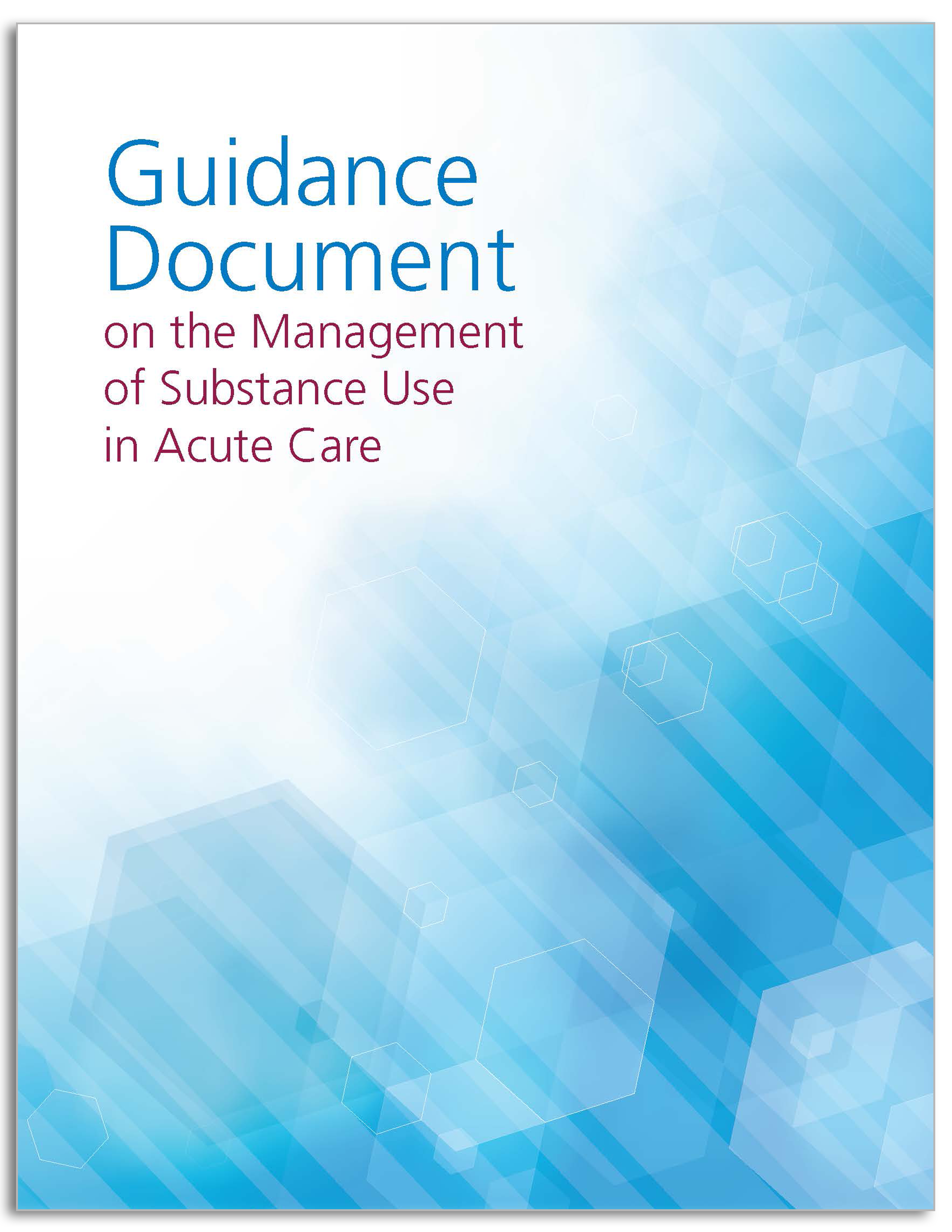The purpose of this document is to provide advice and guidance on how to address these challenges while ensuring the best possible outcomes for patients, health professionals and the health care system.
Key messages on the Guidance Document on the Management of Substance Use Disorder in Acute Care
- Substance use-related health issues remain a public health and health service crisis in Canada, particularly in Alberta. For the first time in four decades Canada’s life expectancy has stopped increasing. This is largely attributable to the opioid crisis.
- Turning the tide on this issue requires the concerted, evidence-based and compassionate efforts of all healthcare providers.
- The Guidance Document on the Management of Substance Use in Acute Care was jointly drafted by 28 authors and an Advisory Committee comprised of 26 expert stakeholders with the mandate to create an Alberta-based resource to support effective acute care for hospital inpatients who use alcohol, opioids and methamphetamines.
- The Advisory Committee included people with lived/living experience (PWLE); front-line care providers; addiction specialists; a public health specialist; a medical ethicist; health administrators; and the following medical, nursing and pharmacy regulatory colleges:
- College of Physicians and Surgeons of Alberta (CPSA)
- College and Association of Registered Nurses of Alberta (CARNA)
- College of Registered Psychiatric Nurses of Alberta (CRPNA)
- College of Licensed Practical Nurses of Alberta (CLPNA)
- Alberta College of Pharmacy (ACP)
- When a person with a substance use disorder presents to hospital, it represents a critical opportunity. The symptoms of a substance use disorder do not resolve upon admission to hospital, and substance use will often continue during admission. This use can pose challenges for patients, hospital clinical teams and employees.
- This Guidance Document was designed to be a focused, point-of-care resource to support the evidence-informed care of people who use alcohol, methamphetamine and/or opioids when they are admitted to hospital.
- While patients admitted to acute care may use a variety of legal and illegal substances, this Guidance Document focuses specifically on approaches and interventions for alcohol, stimulants, and opioids—commonly used substances that are challenging for patients and staff.
- To the best of our knowledge, this is the first document of its kind in Canada.
- The College of Registered Psychiatric Nurses of Alberta (CRPNA) asserts that RPNs have an ethical responsibility to provide competent non-judgmental care for persons in their care regardless of their personal circumstances or the setting in which care is provided. Persons who engage in substance use or injection drug use are a highly stigmatized population, and RPNs need to be at the forefront for harm reduction strategies. They must be well informed of the evidence that underpins such programs, be able to translate and interpret related research, work collaboratively with other healthcare professionals, and identify emergent questions for further research. A harm reduction approach aligns with an RPNs professional responsibility to use critical thinking and evidence-informed knowledge to protect and promote an individual’s right to autonomy, respect, privacy and dignity. We hope it is useful to you in the care you provide for your patients.



